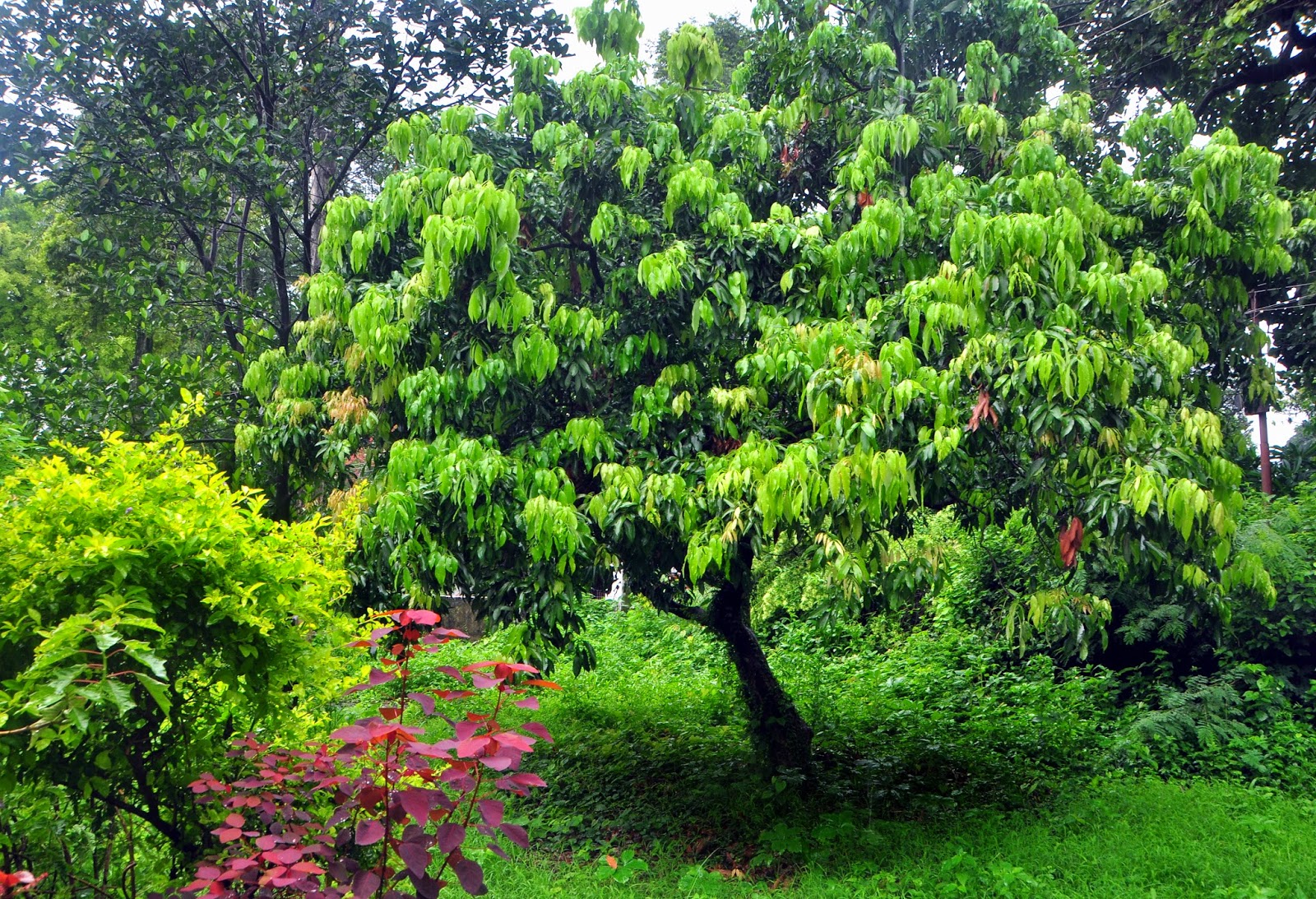Years later, when I called up home from a sweltering Delhi in
July – full and tense like a fat raindrop hanging from the roof ledge and
unable to fall – I would try to recover some of the heady atmosphere of the
mossy, incessant, cold rain of my childhood. On phone, my laughing Ma would put my yearning
in place. Yes, saawan-bhado is here, she’d
say… yes, you’re right, it’s indeed barkha bahaar... and the whole house is fragrant with the
smell of wet dog…”.
Monsoon in Dehradun was not so much of a stormy exclamation
mark as an implacable ellipsis bearing much endlessness. It set about its task
with a grave playfulness that went on for days. It made the leaves glossy and full
and the grass irrepressible. It did not let up even after the snails,
earthworms and the occasional snake had emerged. Those that did not resist it –
like trees and street children – become merry and redolent of life. Those that
did resist – like the house, or people – became creakier, leaky and full of
unexpected little crises like falling plaster and fungal infections.
Ma was right. The wet and harassed dogs always managed to make
their way within – at least one of the six doors that led into the house was
bound to be ajar, at least one of the people who lived there was bound to
develop a compassionate chink in their soggy armour. Once in, they would take
up a safe position under the dining table, tuck both paws under their chin and
settle down to looking at the wet world with silent reproach.
The world seemed composed entirely of grey-black nimbus and
a charged sky. Tiny human-scale houses and trees give them scope and context. The
water condensed and fell, condensed and fell, like this would now be the
natural order of things forever. It fell on this patch of the earth which had
been woodland next to a river – a pahaadi
naala called Rispana – just a few decades before I was born. It seeped into
the soil and nourished and replenished and made fecund. It became the root of a
new grass shoot, a stronger tree root. It made its way to the food chain, it
played its part in the water cycle, it inveigled itself into the sensual
sequence, it thickened the emotional circuit.
It’s not just the cloud-drop-earth continuum that makes the
rain, we know. Rain is being made here on Baba’s forearm as he shivers and draws
the khes – lighter than a blanket,
heavier than a sheet – upon him. It’s being made here in didi’s desire for
something crunchy and oily. Here, as we bite into that pataud, looking out of the window at the downpour, our tongues sharp
with desire. Chachi and Ma have no choice but to worry about clothes not drying
in time, but I can allow the cold moist wind to make my 15-year-old self feel a
beauty and longing I don’t understand. Vaporous and being pulled, like the drops
pulled by gravity. The rain is inside, on the skin, somewhere in the gut.


